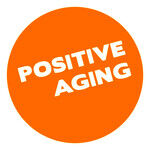The men in your life face an uphill battle keeping healthy.
Some 35 percent of men age 20 and older are obese, and 32 percent of men have high blood pressure, according to the World Health Organization. Another 18 percent of U.S. men, age 18 and over, smoke. Add to all that the fact that men are less likely than women to get routine exams, such as physicals and regular dental care.
All that makes a healthy diet even more important for men. Just what does that healthy diet look like? The Academy of Nutrition and Dietetics recommends:
—At least 2 cups of fruits and 2 1/2 cups of vegetables each day for vitamins, minerals, fiber and phytochemicals.
—Plenty of whole grains. Eat at least half of all grains as whole grains each day. Replace refined grains with whole-grain bread, cereal, pasta, brown rice or oats. Whole grains are high in fiber, help manage hunger and fullness and help fend off certain cancers, such as prostate and colon.
—At least two to three servings of fish per week.
—At least 38 grams of fiber a day for younger men; 30 grams of fiber a day for men older than 50.
—Unsaturated fats such as oils, nuts and oil-based salad dressings in place of saturated fats including full-fat dairy foods, butter and high-fat sweets.
—4,700 milligrams a day of potassium from fruits, vegetables, fish and milk.
Since men have more muscle and are typically bigger than women, they require more calories throughout the day. Moderately active males likely need 2,000 to 2,800 calories per day. Specific energy needs depend on height, weight and activity level.
Men typically are avid meat-eaters because of the perception that more protein equals more muscle mass. That is not the case unless exercise is involved. Excessive meat eating is linked to heart disease and colorectal cancer in men.
The Academy recommends eating red meat less frequently, and, instead, focusing on more beans, lentils, tempeh and tofu. Plant-based proteins decrease disease risk and deliver fiber. In addition, men should cut down on saturated fat from meat, cheese and fried foods, and instead, opt for foods with unsaturated, heart-healthy fats such as olive oil, canola oil, nuts, seeds and avocadoes.
The bottom line for men (and women) is to develop healthy habits that will last a lifetime.
Q and A
Q: Are non-stick cooking sprays healthy? Do they add anything to food?
A: People use cooking sprays for convenience and to limit their use of butter and oil. However, cooking sprays themselves are not completely free of calories and fat, and the typical recommended serving of spray is delivered in a fraction of a second — far less than the long spray time that many people use. Cooking sprays may provide a convenient opportunity to grease pans and baking dishes; however, this may come with a compromise on flavor and satisfaction with the meal as well as ingestion of potential additives present in many aerosol- based sprays. If choosing a cooking spray, it is important to read the ingredients list. Although many brands use actual plant-based oils, such as canola, as the primary ingredient, some brands may use a mixture of oils and artificial flavorings. Additionally, more traditional aerosol cooking sprays contain not only oil, but also an emulsifier (often soy lecithin), an antifoaming agent and a liquid propellant, such as propane or others. Newer sprays are available that eliminate the antifoaming agent and switch the propellant to carbon dioxide. Some products use non-aerosol technology where they gas and oil never mix in the can. The Food and Drug Administration maintains that cooking sprays are safe for consumption. If you prefer to stay away from additives in cooking sprays, then avoiding cooking sprays may be the best option for you. —Tufts University Health & Wellness Letter.
Charlyn Fargo is a registered dietitian at Hy-Vee in Springfield, Ill., and the media representative for the Illinois Academy of Nutrition and Dietetics. For comments or questions, contact her at [email protected] or follow her on Twitter @Nutrition Rd. To find out more about Charlyn Fargo and read features by other Creators Syndicate writers and cartoonists, visit the Creators Syndicate website at www.creators.com.






View Comments